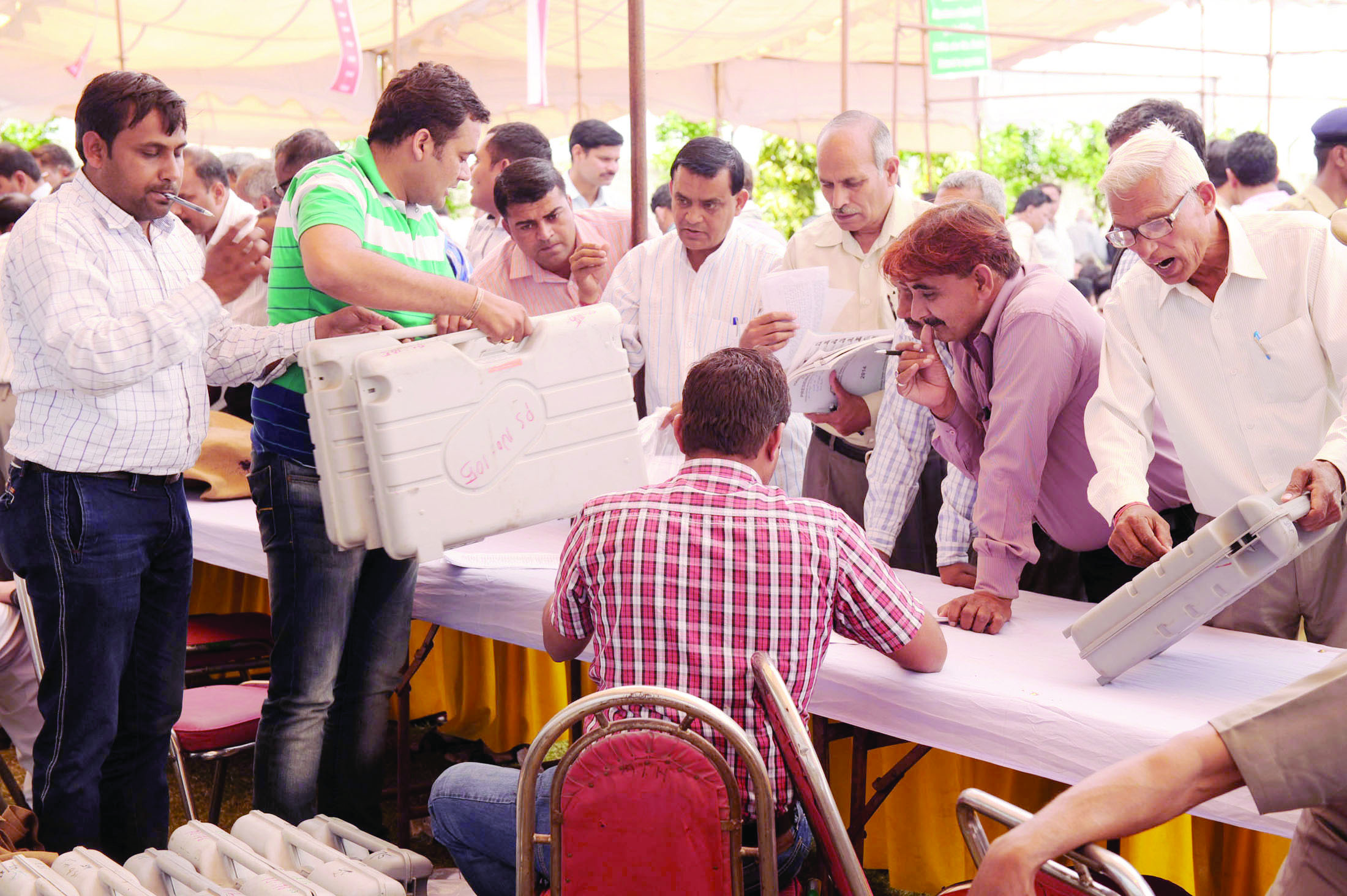The success of any policy or programme depends on how well we understand the human behaviour. Over time the evidence from psychology, sociology, neuroscience and other disciplines has found humans are not so rational. Such evidence needs to be taken into account by policy makers and implementers.
A clear understanding of human behaviour – including appreciation of certain biases – helps introduce appropriate features in any policy/programme, thereby improving its outcomes. The electoral reforms initiated by the election commission of India (EC) can be analysed to understand the new evidence about human behaviour under the ambit of behavioural economics, with a view to examine their effectiveness.
Any government programme needs an understanding of both the motivation/attitude of the public servants and the human behaviour of the target population. A programme is designed and implemented by the public servants. In doing so, they implicitly make certain assumptions about human behaviour.
Public servants were long ago assumed to be altruists. It was assumed that they were intrinsically motivated, and hence would deliver their best. Now with evidence from various disciplines, public servants are assumed to be self-interested. Over a period of time, the literature has now labelled them as knaves.
They are now as self-interested as any other people, like private sector employees.
Humans, as consumers or beneficiaries, are assumed to be irrational and having several biases. Biases are intrinsic and affect belief formation, and interfere in the act of rational decision-making, thereby resulting in suboptimal outcomes in a programme or policy.
These two prevailing assumptions have implications for the efficient delivery of the EC initiatives as well.
Low voter turnout, for some of the elections, was the problem the EC faced before the reforms started. It was due to many factors, especially the under-registration of voters, and the low turnout of registered voters at the polling booth on the election day. The advent of the electoral reforms, especially the Systematic Voter Education and Electoral Participation (SVEEP) in 2009, meant a sustainable strategy was in place.
Before the EC reforms, the assumption was that voters were rational, that they would come to the sub-divisional/district office to register themselves, and bear through the long process of registration for the sake of stronger democracy. In reality, it never happened, and the voting percentage was not very satisfactory.
Realising the paucity of time and impatience of people, the EC made available the necessary forms for registration and correction of names at prominent places like post offices and banks. This underscored the existence of limited will power bias in humans. This bias resulted from the inability of people to overcome the short-term pain of spending time for getting themselves registered even though they know what they prefer in long term, i.e., stronger democracy. Such a bias led to the sub-optimal outcome of low registration of voters.
Appreciating the limited will power, the EC also introduced the concept of booth level officer (BLO). The availability of BLOs at their allotted booth on the booth day shortened the time and procedure for getting their name registered in the voter list, for correction of their names and so on. It was easy for voters to find the BLOs at their respective booths on the booth day – a special campaign usually carried out on Sundays.
The booth day initiative utilised the bandwagon effect – a form of bias prevalent in humans to do what many others do, and made ‘irrational’ people come out after seeing their neighbours coming out for registration of their names in the voters list, on the booth day. The first footers on the booth day were motivated by the media campaign carried out to emphasise the importance of voting.
Another observation about the registered voters was that they turned up at the booths in small numbers, either because they did not know the location or because they did not have the electoral photo identity cards (EPIC). The distribution of voter slips by the BLOs just before the polling day instilled the belief in the voters that they would not be wasting their time in searching for the polling station. Both the assumptions in the pre-reforms era – that the voters knew the location of booths and would spend time in searching for the correct polling booth (if they did not know) – did not stand the test of time. Searching the polling station for the sake of stronger democracy by the rational voters was not backed by evidence before the reforms, hence the change in policy.
The registered voters were not so forthcoming in collecting the EPICs, and hence would not be willing to go to vote. The home delivery of voter slips increased the number of voters on the booth on the polling day. Previously it was assumed that they would collect the EPIC, but in reality, due to status quo bias, they never collected. In the absence of EPIC or other identity documents, the voters stayed away from polling. With the delivery of voter slips, voters did not need to carry any other identification document.
When the voters came to the booths, sometimes they were turned back because of errors in their particulars recorded in the electoral list. With the possession of voter slips, the voters did not need to worry about that, since the voter slips included their photographs apart from other details like names and booth location. The introduction of this feature reduced the status quo bias.
The facility for searching their names in the voters list, either on the CEO website or through the SMS and helpline, enabled tech-savvy people to double-check their names in the voter list. This kind of reform utilised the rise of laptop-using population in the country. The introduction of several applications on mobile phones widened the options and use of search facility.
The scheduled publication of voter list on various intervals assumed that the voters would come to verify their names and other particulars. If not correct, they would spend time to fill the requisite form. The experience of some of the voters being denied the opportunity to vote due to the incorrect entries, even when they spent a long time standing in the queue, never helped the rational voter. The existence of another bias, the availability heuristic – through overestimating the likelihood of their name not being in the voter list or being in incorrect form – worked to reduce the number of voters. The initiative of search facilities finally took care of this bias: now they could check their names and particulars in advance.
A major factor in the success of electoral reforms was the lack of resistance from the political parties. The act of policy-making and implementation must factor in the probable resistance emanating from the stakeholders. The involvement of stakeholders during this process itself reduces or eliminates any probable resistance.
A better understanding of human biases improved the outcome of policy initiatives introduced by the EC. In states like UP, the voting percentage reached as high as 59.4 percent in 2012 assembly elections compared to 46 percent in 2007 assembly elections. The new policy initiatives implicitly took into account the irrational behaviour of people, and accordingly introduced various features in the reforms. The final outcome, of course, was the higher voter turnout.
(Nitishwar Kumar is secretary, primary education, Uttar Pradesh)

